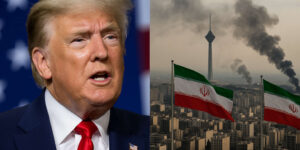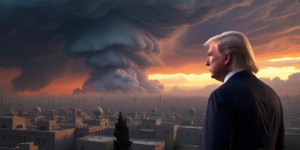Iraq’s Yazidis Enduring ‘Hell’ as ISIS Attacks
As tens of thousands of Yazidi Kurds flee Islamic militants in northern Iraq, IMB workers in the region are joining Yazidi immigrants in the United States in a desperate plea for international aid and prayer amid the developing humanitarian crisis.
On Sunday, Sunni extremists known as the Islamic State or ISIS (Islamic State of Iraq and Syria) seized the city of Sinjar in Iraqi Kurdistan, near the country’s border with Syria. Sinjar is the home of Iraq’s Yazidi people, a “minority among minorities,” says IMB’s David Edwards,* who has spent the past 14 years working among Kurds.
Though ethnically Kurdish, Yazidis are not Muslim like the majority of their Kurdish brethren, Edwards explains. Instead, Yazidis follow an ancient religion rooted in Zoroastrianism that ISIS equates with “devil worship,” making the Yazidis a prime target along with Christians, Shia Muslims and any other belief system outside the militants’ ultra-conservative brand of Sunni Islam. ISIS’s ultimatum is simple: convert or die.
Terrified by the brutal violence directed at Christians when ISIS captured Mosul in June, Sinjar’s Yazidis quickly emptied the city early Sunday morning as Kurdish security forces, reportedly low on ammunition, retreated. Many residents left everything behind. Thousands of Yazidis without transportation escaped into nearby mountains, including as many as 25,000 children according to UNICEF, a situation John Harper* said he shudders to think about.
“They are going to be encountering hell,” says the former IMB worker, who has extensive experience in Kurdistan. Sinjar’s desert-like mountains have little vegetation and no water, he says. Daytime temperatures can top 120 degrees.
“Even if you’re sitting in the shade with some wind, it would be like sitting in front of an oven with a fan,” he says.
Harper’s Kurdish contacts say that at least 50 Yazidis already have died from exposure, including children. He fears many more stranded in the mountains may perish within the next few days without immediate humanitarian aid. Meanwhile, Yazidis who could not leave Sinjar remain locked in their homes, at the mercy of ISIS.
The situation is so dire that more than 300 Yazidi Kurds in Lincoln, Nebraska, rallied at the state’s capitol building Aug. 3 and 4 to raise awareness about the crisis. Lincoln is home to one of the world’s largest Yazidi populations outside Kurdistan, and residents such as Gulie (pronounced Julie) Khalaff are desperate for something—anything—to be done.
Khalaff, 28, was born in Syria, but her parents are from Sinjar. Much of her extended family still resides there. Khalaff says nearly everyone in Lincoln’s Yazidi community has family or friends in Sinjar or nearby villages, but few know what’s happened to them. She holds back tears as she talks, saying she’s scared and hasn’t slept much since ISIS overran the city. She adds that Yazidis in Lincoln are glued to Facebook, cell phones and the news, waiting for word from Sinjar. Some information is trickling in: They’ve heard reports that ISIS is ordering women to be circumcised and wear burkas. Others have been raped or forced to marry ISIS soldiers.
Though the capitol rallies did make the local news in Lincoln, Khalaff isn’t sure what difference they’ve made. She hopes Americans will write their representatives in Congress to ask the U.S. government to take action.
“Why should anyone pay attention to our story?” Khalaff asks, considering all the other trouble in the world. “But I can’t just sit at home. … I have to try.”
Jenn Worley, a member of Community Harvest Baptist Church in Lincoln, has shared Christ’s love with the city’s Yazidi community for more than a decade. The 27-year-old teacher leads a Bible study at her home for high school-aged Yazidi girls. She was invited, along with Community Harvest’s pastor, Mark Jones, to help support the Yazidis at Sunday’s statehouse rally. Afterward, Worley and Jones visited several Yazidi homes to offer comfort, encouragement and prayer. Some of the families’ hopelessness was heartbreaking, she says. Worley remembers talking with one Yazidi man convinced he would never see his family again.
“They’re dead,” he told her. “Even if they’re alive, it’s only because they are still breathing. It’s only a matter of time. … They’re stuck in the mountains without food.”
“We told him the government can only do so much, but God has no limits,” Worley says. “God can change the heart of ISIS, God can perform a miracle and give your family food on the mountain, He can strengthen them so even if they don’t have food, they’ll live. God can do anything.”
Please pray for the Yazidi Kurds:
- Beg the Lord to awaken the world to the humanitarian crisis unfolding in Iraq and provide pathways for Christians and others to respond.
- Ask God to miraculously protect the Yazidis and other Kurds who fled into the mountains; ask Him to provide a means of rescue and temporary homes for the refugees.
- Pray that ISIS leaders and soldiers would experience the love of Jesus Christ and that their lives would be transformed.
- Ask the Lord to preserve and embolden the small remnant of believers in Kurdistan, so that one day through their witness, every Iraqi might have the opportunity to hear the Gospel.
*Name changed
This article originally appeared on IMB.org.




























































